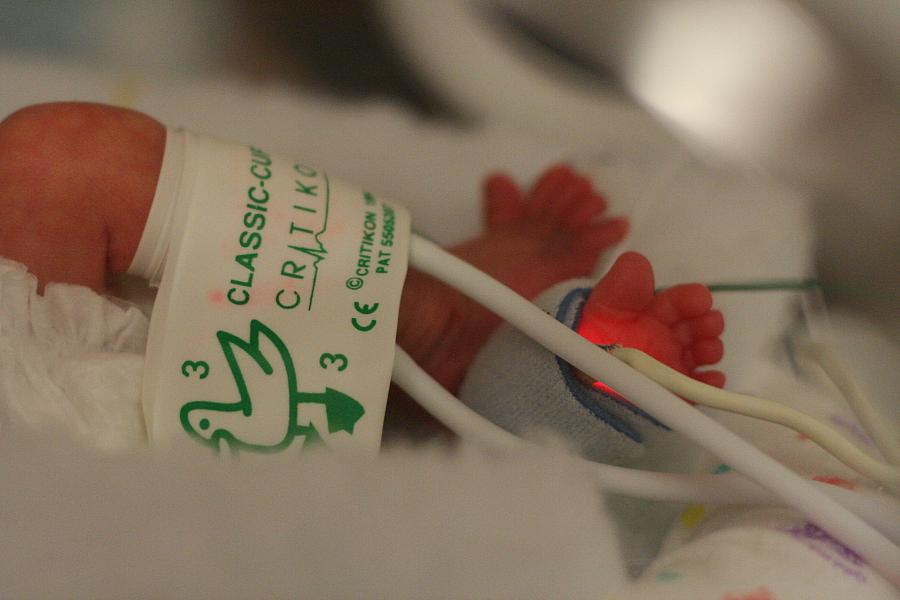Talking about the end of life at the beginning

A premature infant wears a blood pressure cuff in the NICU. By Evelyn via Flickr.
Technology to care for very sick and premature infants – also called “micro preemies” – has improved dramatically over the past two decades. Neonates born earlier and earlier are surviving, some born at just 25 weeks and weighing just over a pound.
But these incredible measures also mean parents and neonatologists in the NICU face complex ethical questions when deciding how much care to provide extremely low birth weight and critically ill infants, and when to stop. Those decisions can cause conflict between parents and physicians, who may end up providing treatment they feel is inappropriate and causes suffering. But even for the most experienced doctors and nurses, predicting neurodevelopmental outcomes is very difficult, and the concept of quality of life is subjective. Since the babies can't speak for themselves, the parents must act as their surrogates.
Generally, this isn’t something doctors and nurses learn how to handle in school. Considerations include possible permanent mental and physical impairments in surviving infants, as well as pain and suffering, but also a family's hopes for their child. The very notion of withholding care runs contrary to the narrative that we should do everything possible to save the most vulnerable children.
This is one of three stories that I plan to do as part of my Reporting on Health Fellowship. The others will focus on mental health.

